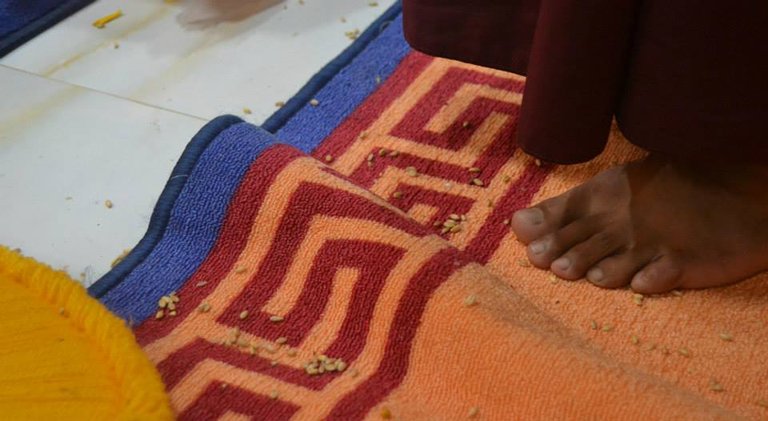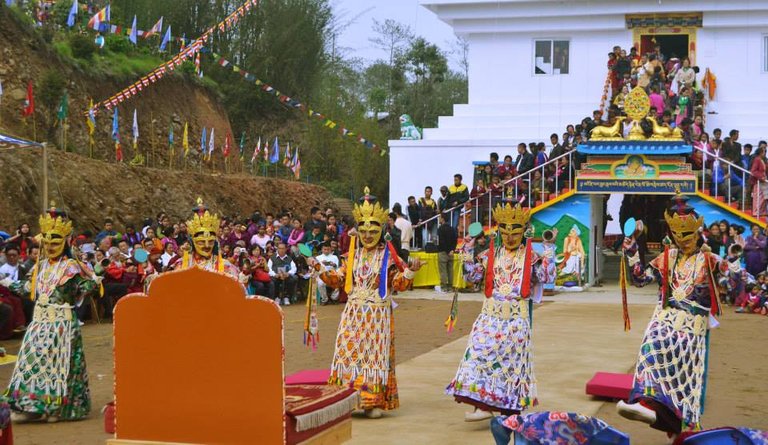The monk in front of me has fallen asleep. Not yet succumbing to the deep sleep of limpness, he is still, somehow, upright, as if the muscles in his wrinkled neck are faithfully trying not to betray the gentle doze of the head above them.

The mantra concludes with the clash of cymbals and the nasal bellow of conch-shell horns. He jolts forward, his heavy eyelids shooting apart as if trying to distance themselves from the glassy pupil between.
It has been raining almost intermittently for four days in Gombadara, five if your count a hail storm which destroyed the first marquee on Monday. The bungalows housing the envoy of esteemed Taiwanese donors have been without electricity, and as a result, sans iPhones. I have never seen a group of people more adrift.
Among the curious and variously incongruous visitors to the opening over our Stupa – a Buddhist place of worship – are devotees of every persuasion; from a Finnish lorry driver to Bhutanese families, and a Californian hippy to Ladhaki nuns. There are also the iPhoneless clutch of smiling Tashi-Deleking Taiwanese, and many, many Tibetans.
I have begun the day with 3am puja – the reading of the mantras and accompanying prayer ceremony held several times daily by monks – a special session being held in honour of the new sanctum.

Once the first puja is over, the real celebrations will begin: thousands of people will flock to our tiny hamlet to pay homage to the Buddha, circumnambulate the blessed structure, and watch the dancing for which our village has been preparing for months.
When the hour finally comes to enter the upper echelons of the towering three-storey structure, I am led upupup by a clutch of the pupils at school. Despite the attentions of several fellows inside, who exceeded their capacity for creepiness only in their determination to inflict it upon me, I brave the three steep flights of stairs to the top of the Stupa. Each progressively-smaller hall, like brightly painted Russian dolls, burns with the light of candles, emanations of the thousands of incense sticks filling the prayer-heavy air.
The human current of devotees pushes me to the top level, where a Giant Buddha sits, gradually succumbing to the growing mound of white scarves each person places over its shining shoulders. Walking me in circles onetwothree times the top room, the current then carries me unceremoniously donwdowndown and out; disgorging me into the light of day. It is time for the Lama dance: masked monks appear. Now the celebrations will begin in earnest.
